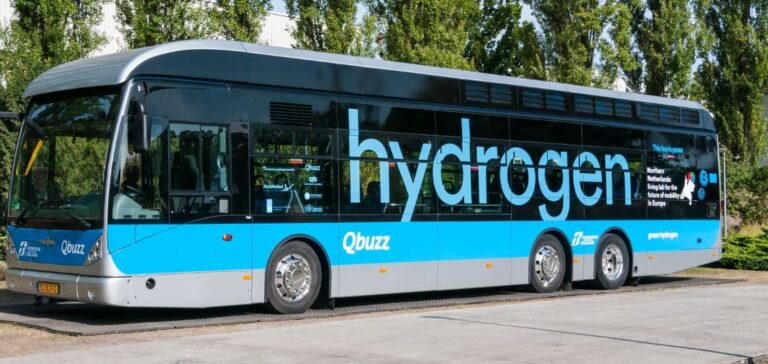Belfort, which dreams of becoming France’s hydrogen capital, has just launched its first hydrogen-powered electric buses for public transport, with the aim of equipping half its fleet by 2025, according to the joint association that manages the network.
A pioneering network in France: Optymo introduces zero-emission buses.
Seven new buses have been tested in operation since Monday and will be running normally on the network at the start of the new school year.
“This is the culmination of a process of reflection that began in 2011,” explains Marc Rovigo, Director of the Syndicat Mixte des Transports en Commun (SMTC), which manages the Optymo network.
But the cost was initially too high, and it took the support of several backers to buy the buses, which cost almost 700,000 euros each, compared with around 280,000 euros for a diesel bus. Subsidies from the Burgundy-Franche-Comté Region, the French State and Europe bring the unit cost down to 420,000 euros. SMTC spent 5.4 million euros to purchase the buses and bring its workshops up to standard. In a second phase, 20 new hydrogen buses will be added to the fleet in 2025.
“50% of our fleet will then be zero-emission,” enthuses Marc Rovigo. “We’ll be the leading network in France”.
Hydrogen, a promising alternative for the Optymo bus network.
The hydrogen option was chosen because it offers greater autonomy, of the order of 400 kilometers, bearing in mind that Optymo’s longest service is 390 kilometers long.
“In terms of operation, hydrogen is almost like diesel or gas, with fill-ups taking around ten minutes,” says Yannick Monnier, Director of the Régie des Transports du Territoire de Belfort (RTTB), which operates the Optymo network.
A hydrogen production and distribution station has been installed near the bus depot, by Hynamics, a subsidiary of the EDF Group. While this is environmentally advantageous, it also comes at a significant cost, since a full tank of hydrogen is currently twice as expensive as diesel. It takes nine kilos of hydrogen to drive 100 kilometers, with one kilo costing around 10 euros.
“We’re proud to be part of the Belfort region’s hydrogen ecosystem,” insists Marc Rovigo.
A number of industrial players in the sector have set up in the Belfort region (Faurecia, McPhy and Inocel, for example). Optymo carries 8 million passengers a year. The towns of Pau, Lens and Auxerre already operate hydrogen-powered buses.






















